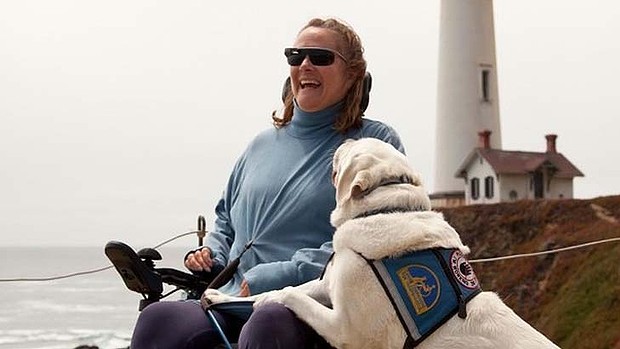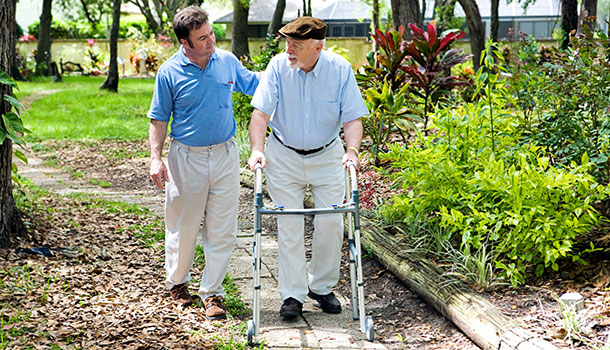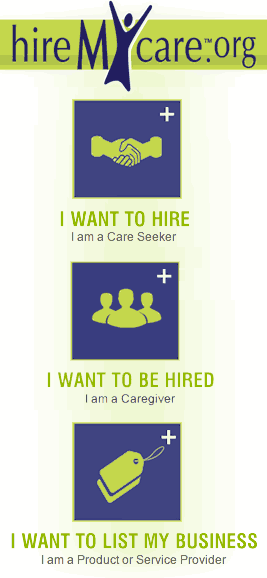Category Archives: Personal Assistants
Looking for someone to help provide in-home care? HireMyCare.org is there 24/7, 365 days a year to help you find qualified caregivers near you. HireMyCare.org isn’t a caregiving agency: We don’t hire caregivers and then loan them out to you: Instead, we put you in charge of recruiting and hiring caregivers in your area that meet your unique scheduling and care needs. We simply provide the online space for your to search!
If you’re a Care Seeker who hires caregivers via HireMyCare.org in your home, you need to be aware that you become the legal Employer of Record. This means that you are required to abide by all local, state and Federal employment regulations, including Equal Opportunity laws.
For example, 10 states and over 50 municipalities have passed the so-called “Ban the Box” laws, which prohibit employers from asking about criminal history on the application form, prior to the first interview, or in some cases at any point before a conditional offer of employment is made. The purpose of such laws is to give job applicants a chance to be evaluated on a case-by-case basis and to explain their criminal history during an interview. Please determine whether you are accountable to this law by searching for your state or locality in this PDF from the National Employment Law Project: http://nelp.3cdn.net/495bf1d813cadb030d_qxm6b9zbt.pdf
 Very important indeed, according to a recent study by the Congressional Budget Office. The study found that the economic value of caregiving for older persons in 2011 to be 234 billion dollars, more than the amount of paid care from all other sources such as Medicare, Medicaid and and community services combined.
Very important indeed, according to a recent study by the Congressional Budget Office. The study found that the economic value of caregiving for older persons in 2011 to be 234 billion dollars, more than the amount of paid care from all other sources such as Medicare, Medicaid and and community services combined.
The magnitude of family caregiving dwarfs other public and private costs associated with providing long-term services and supports to people with disabilities of all ages. Public policies should recognize these contributions and provide greater support for the backbone of our nation’s long-term services and supports system — family caregivers.
Read more about the economic impact of family caregivers on the AARP’s website.
The Medicaid Money Follows the Person (MFP) program is allowing more seniors to direct their own care in their own homes. The Society of Certified Senior Advisors talks about this program is helping senior citizens re-enter the community and regain their independence.
After living for three years in a nursing home following a stroke, Gail, 78, went through his life savings paying for the nursing home and eventually qualified for Medicaid. He had always wanted to and intended to move back home, but his condition required that he stay in the nursing home. His ex-wife, Sue, and a social worker at the nursing home informed him about a program called “Money Follows the Person” (MFP), which supports efforts to move institutionalized individuals back home.
In 2009, MFP enabled Gail to move into Sue’s house because she is his main care provider. The program allotted $1,500 for home services, modifications to the home in the form of ramps and a handicap accessible bathroom, 16 hours of personal care services each month, and attendance at adult day care each day. Gail’s health has remained steady, he is able to enjoy more of a routine life, and he is able to get the care he needs at home while surrounded by friends and family.

Google Glass is a revolutionary new device that combines a wearable computer with a head-up-display and voice control. Google Glass can be programmed to perform a number of tasks, many of which promise to be very useful for people with disabilities.
For instance, a young programmer/entrepreneur in Stanford has created a facial recognition programmer that helps people with autism recognize and respond to other people’s emotions via Google Glass’s onboard camera and computer.
“As you slip on the Google Glass frames – placing them carefully over your own eyeglasses – you’re told they can read the emotions of the people around you.
These Google Glass frames run an experimental application cooked up by the person you’re looking at – the guy who keeps moving from happiness to surprise and back again. His name is Catalin Voss, and he’s all of 18 years old.
With help from Google Glass, Voss and his co-founder, Jonathan Yan, hope to create a face-tracking engine that can help people to better recognize and understand the expressions and emotions of others. The tool would be a natural for treating autism and related disorders.”
Google Glass is also helping people with severe paralysis return to the hobbies they love.
“It’s been 18 years since Tammie Lou Van Sant held a camera. But nearly two decades after a car accident left her paralyzed from the chest down, Van Sant is shooting again – thanks to a device that could be part of technology’s next big trend.
Google’s Glass headset, which connects to users’ smartphones and displays information on a screen that hovers above one eye, is the first of what analysts say may be a new trend of wearable technology – headsets, watches, fitness trackers and other devices that are worn, rather than slipped into a pocket”
Over the last few decades, devices such as motorized wheelchairs and TDD phones have allowed people to increase their independence and freedom and rely less on those around them for their basic day-to-day needs. Now with Google Glass, the convenience and features of a smartphone are now within the reach of a much wider audience, allowing people with disabilities new ways to share their lives and interact with others.
Kathy from the Salt Lake County Caregiver Support Program tells us of a wonderful moment she witnessed.
“Today I witnessed a heroic caregiver—he simply held his father’s elbow. The man steadied his father’s uneasy movements as he walked into the bank and up to the teller. The father did his own banking, spoke to the teller and quietly put away his paperwork and I.D. The caregiver never said a word, simply kept a light touch on his father’s elbow. The only word I heard the caregiver speak was “Let me get that for you Dad” as he opened the heavy bank door to leave. Sometimes the most important thing we ever say to those we care for is done in body language—no words or instructions required. Thank you caregivers for your kind and supportive actions.”
HireMyCare.com is now HireMyCare.ORG
Since we launched the site in April, we have been looking for ways to improve its usability and accessibility so that more people can use the site to find the care what they need, and hire who they want. We’ve been gathering feedback and will be making more changes that we think you’ll find helpful. In the meantime, we’ve decided it’s best to give access to the site FREE OF CHARGE for all Care Seekers.
What does this mean for you?
-
If you’re already signed up with a free coupon code, you’ll continue to have access to the site even after your coupon expires (as long as you have not closed your account).
-
You should tell your friends and neighbors who are also looking for care to sign up! After all, IT’S FREE!
-
All your bookmarks and saved links will work as they did before, only now HireMyCare.org will show up as the web address and not HireMyCare.com.
-
You should continue to call and give us feedback about how it’s working for you. We really care about making this useful.
Have questions about the change? Feel free to contact us at (855) 285-HIRE (4473) or via email at [email protected]






